As the collegiate racing season approaches, FasterSkier chatted with Jana Weinberger, Director of Skiing and Head Nordic Coach of the Colorado University Buffaloes. The Boulder-based team returns to racing after a decisive win at NCAAs last season on their home course.
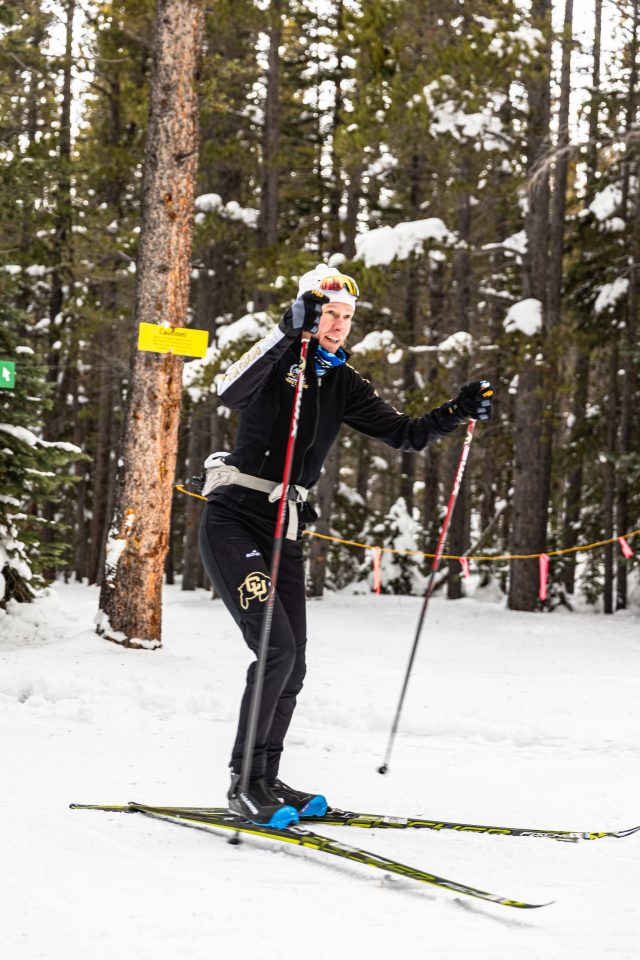
FasterSkier: NCAAs was an impressive showing for CU last year. How are you planning on harnessing the energy from your win into this upcoming season?
Jana Weinberger: Last year was great for us. Before last season, we had not won a meet in a couple of years. So as the season was going on, as we won some meets, I think athletes started believing that we could actually win as a team. [At NCAAs] it was so much fun just to see them finish, and how excited they were when they found out we won. I think that energy is carrying into this year as well. Just this excitement and a motivation to work hard through the summer…they have more confidence now.
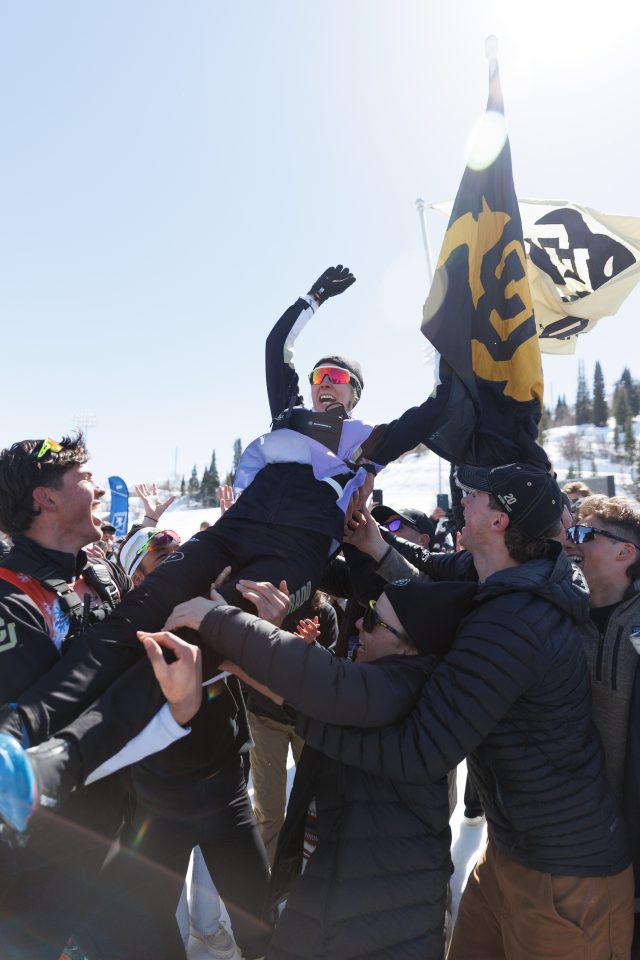
FasterSkier: How is that energy showing up at practice each day?
Jana Weinberger: All the cards are on the table, but we also realize that we start from zero this year. Nothing from last year carries over, we have to start building the team up and building individuals up. It’s a new season and we are ready for it.
FasterSkier: Who are your key returners? Any new talent on the team this season?
Jana Weinberger: Our main returner for women is Hanna Abrahamson. Last year she struggled with some injuries but was still able to ski top 10 for us at NCAAs. I expect she’s going to be very good this year. [Next], our transfer student from MSU, Tilde Bångman. She had a very strong season last year and she’s looking strong this year. Karolina Kaleta, from Poland, is a senior this year and had a very good summer of training so I’m excited to see what she can do. Our incoming girl Astri Lunde – it would be exciting for me to see what she’s going to do against the college girls.
For the men, it’s hard to lose Magnus Boee, who was great for us last year. Will Koch, a senior this year, has been training well and I think he’s in the best shape so far of his five years here. Johannes Flaaten, Hugo Hinkfuss, Luka Riley, Zander Maruer, Trey Jones – they’ve been training very well. All of them could be part of our NCAA team. It just depends who we pick.
FasterSkier: Can you talk a little more about your team – how do the athletes work together and push themselves?
Jana Weinberger: I think one of the strengths of our team is that we all gather under one flag – University of Colorado, Boulder Buffaloes. When we go out there and race RMISA races, we go and represent one entity. All the athletes are excited and proud to be Buffaloes, and that kind of mentality is great for them to feel like they belong to something. We are a very close team. We travel together and stay in the same house, cook together, watch movies together, and watch World Cup ski races together.
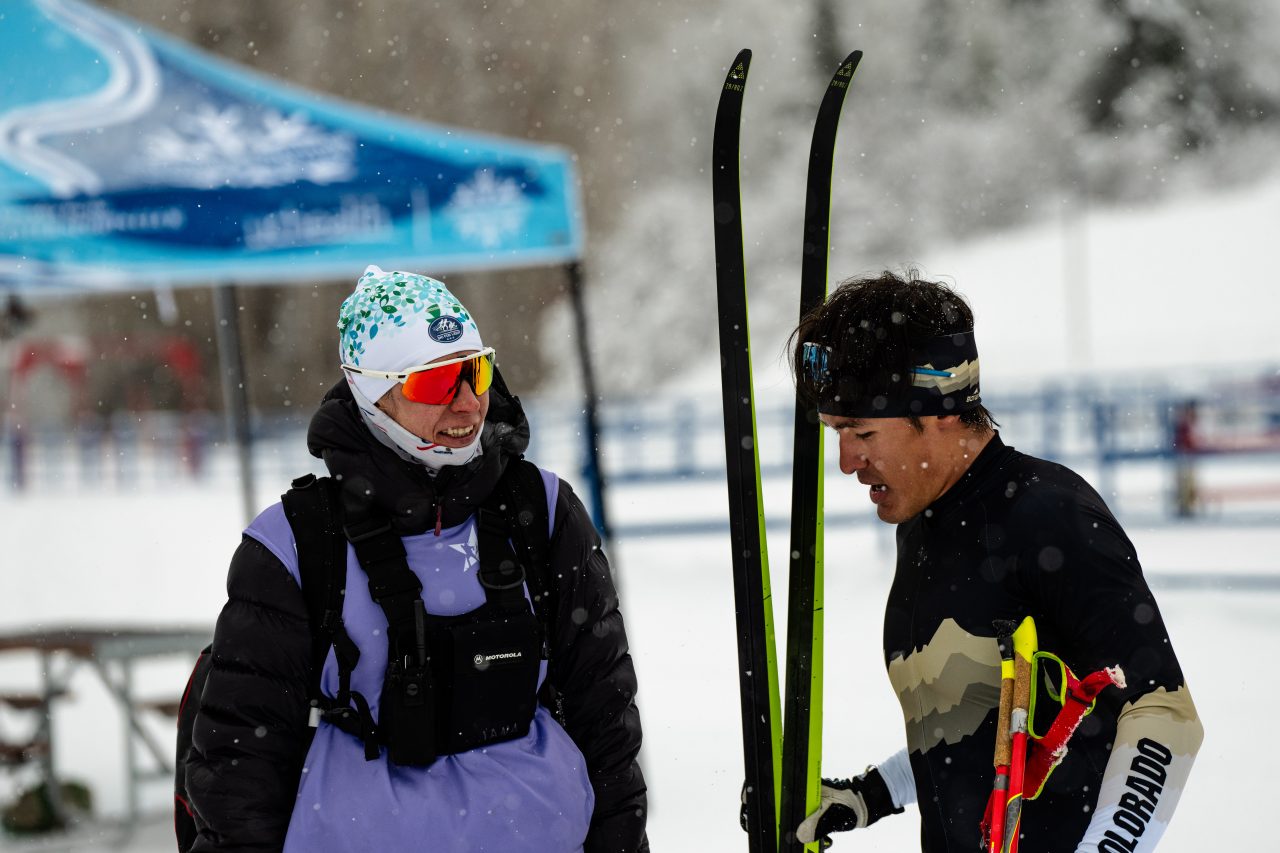
FasterSkier: I’m curious if there is a workout or technique you were focusing on with the team this fall?
Jana Weinberger: Fall workouts are very important. That’s where we try to build a base so we can build the rest of the season on top of it. You cannot build on a weak foundation. I expect athletes to show up here in the fall in shape, ready to work. We start out with L3 intensity 2-3 times a week. Later in the fall we add some L4 intensity. It is very important to keep your L3 intensity L3 and not go over. That’s one of the things I have athletes be very conscious of. We are lucky enough to be one of the schools that has a roller ski treadmill, and it’s a great tool to find your [lactate threshold] levels. We do [lactate threshold] testing once every one or two months, so athletes feel confident in their numbers. That’s the main mistake, athletes go way too hard doing L3 workouts. If you overdo it, you’re not recovered enough, and you cannot push your body where it needs to be pushed for the next workout.
FasterSkier: I think that’s great, especially having the science and data behind the numbers to back it up.
Jana Weinberger: I think it’s important to educate the athletes as well as to why we do things the way we do. Why are we going L3, why are we going L4? What happens with your body when you’re going L3, what does it mean when I’m at my threshold? The more they know, the more they believe in the system of what we do. Then it’s not just the coach telling you, it’s about educating athletes too. So they can start thinking more about their training. [I ask], What are the workouts that make you better? Pay attention to what works for you and what doesn’t work for you. Let’s not do the things that don’t work for you! This way [the athletes] have more ownership in what they do. When they do well, they feel more pride in what they’ve done.
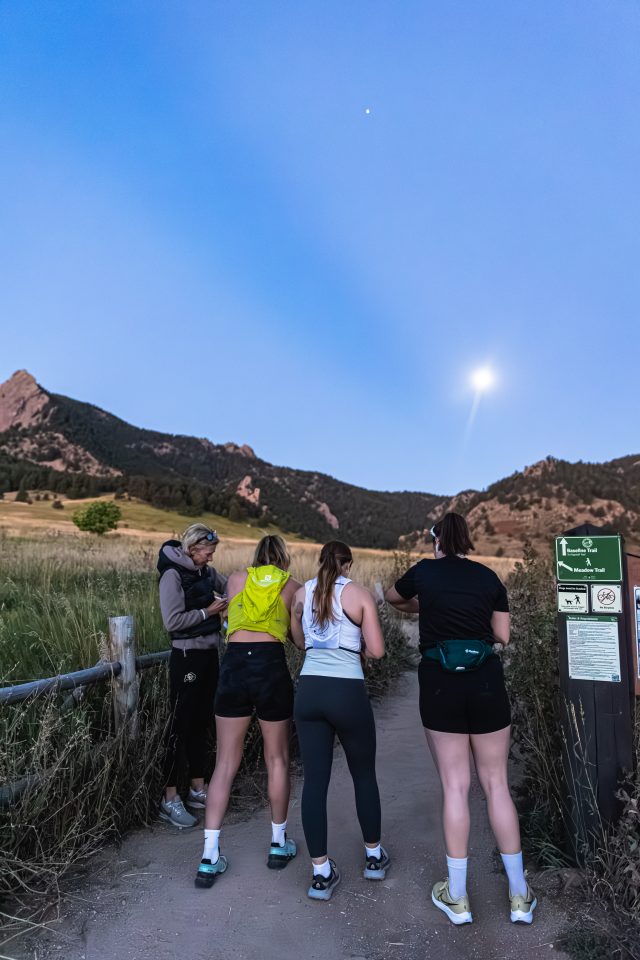
FasterSkier: What is one key workout or type of training that you are focusing on during early-season on snow training?
Jana Weinberger: When we first get on snow, we just try and get some volume in. We try to ski without poles more, work on our technique and work on our kick, getting back to basics. We try to get some good hours in and build a ski base for the rest of the ski season.
FasterSkier: Do you think men and women’s bodies differ in absorbing training?
Jana Weinberger: I always think men and women can do the same things. I don’t think gender really plays a role in it. But I do realize that males and females are different, so I think they need to be coached differently. I think age and development plays more of a part in training than whether you’re a female or male. I have different options for athletes when we do intervals. I separate them more by [age] – freshmen and sophomores do a little less, juniors and seniors do a little more. I think females can do anything they can put their mind to.
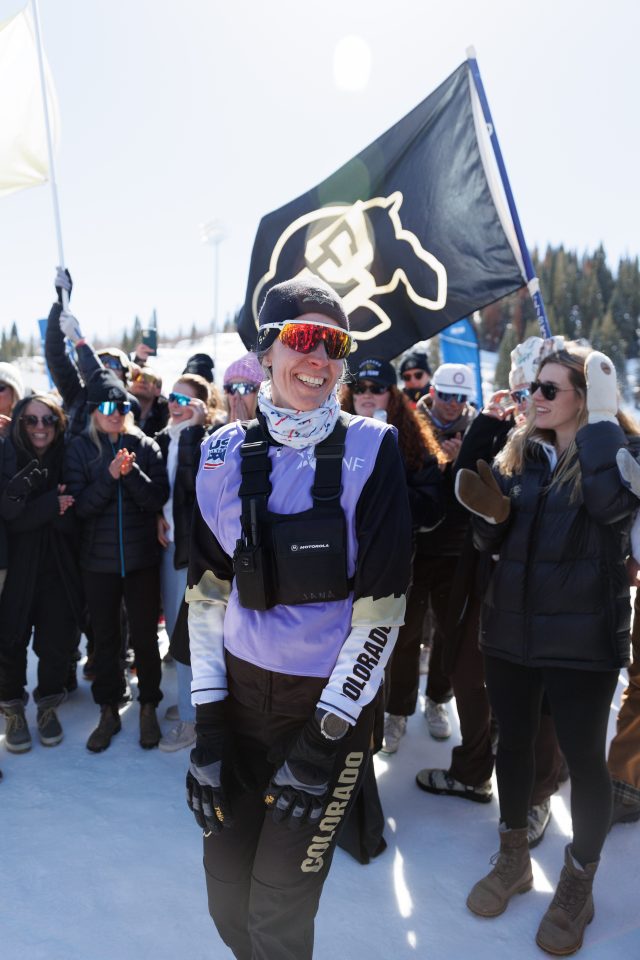
FasterSkier: As one of very few women to have won an NCAA championship in Nordic Skiing, can you speak to your experience as a woman in this male-dominated field?
Jana Weinberger: Overall, I love the RMISA coaching circuit. Everybody is respectful, and it’s a good environment for women to grow as coaches. I just do my job. I go to work, and I love it. I do it to my best abilities. I don’t really think too much about it, whether I’m a female or male. I think if we do our jobs well it doesn’t really matter.
I think the U.S. Ski team has done a great job with their programs empowering women for coaching and waxing, where they take selected women to the World Cup to get experience. I think that’s great. I think that’s how we learn, just by experience, by doing it. If you’re never getting the chance to do things then you never learn.
I would encourage women to apply for jobs that might feel unattainable. It might be scary but challenges are good, they help us grow as a person and as a professional. There are people around you who want you to succeed and asking for help or advice is not a sign of weakness. I think it shows passion and ability to learn and grow.
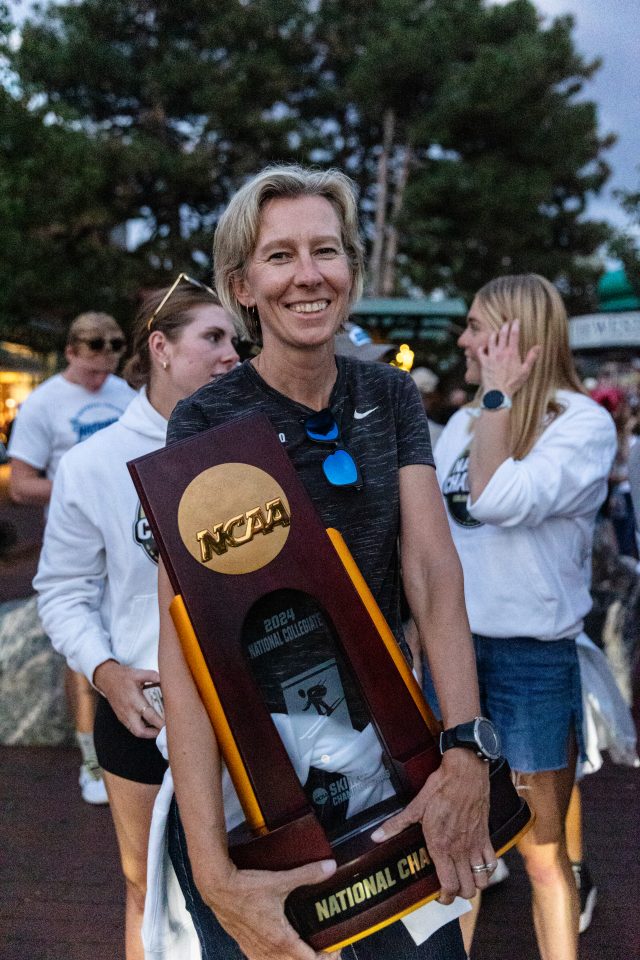
Follow Coach Weinberger and the CU Buffaloes as they start their season at the U.S. National Championships in Anchorage on January 2nd.
Marika Massey-Bierman
Marika grew up skiing in Vermont and currently lives in Somerville, MA. She raced for Williams College and currently coaches high school nordic in the Greater Boston area.



